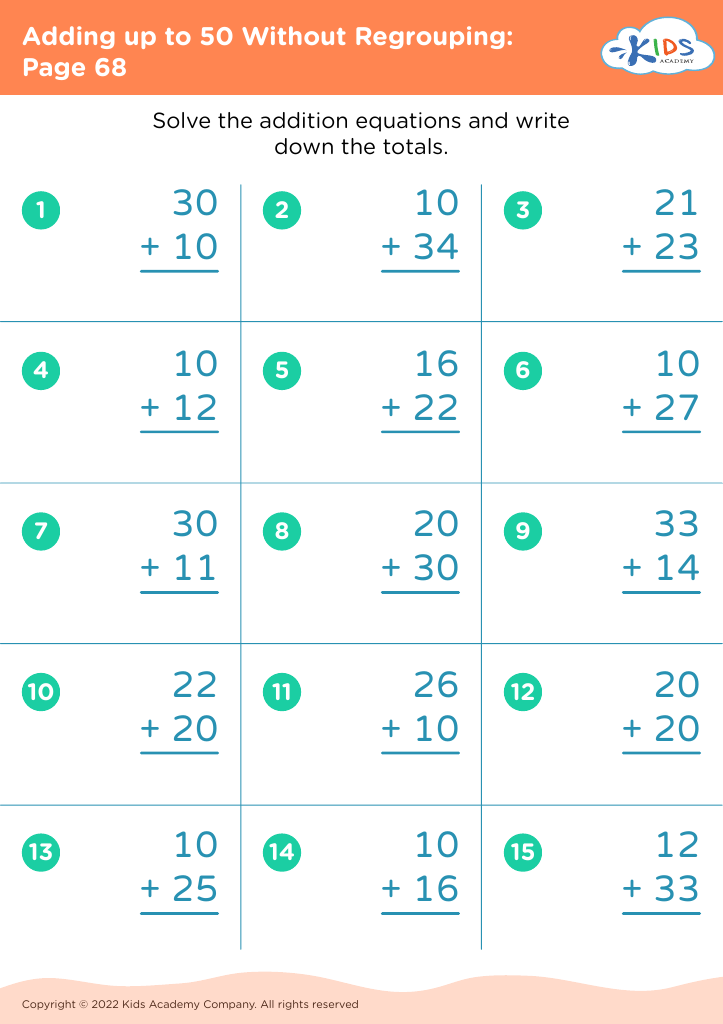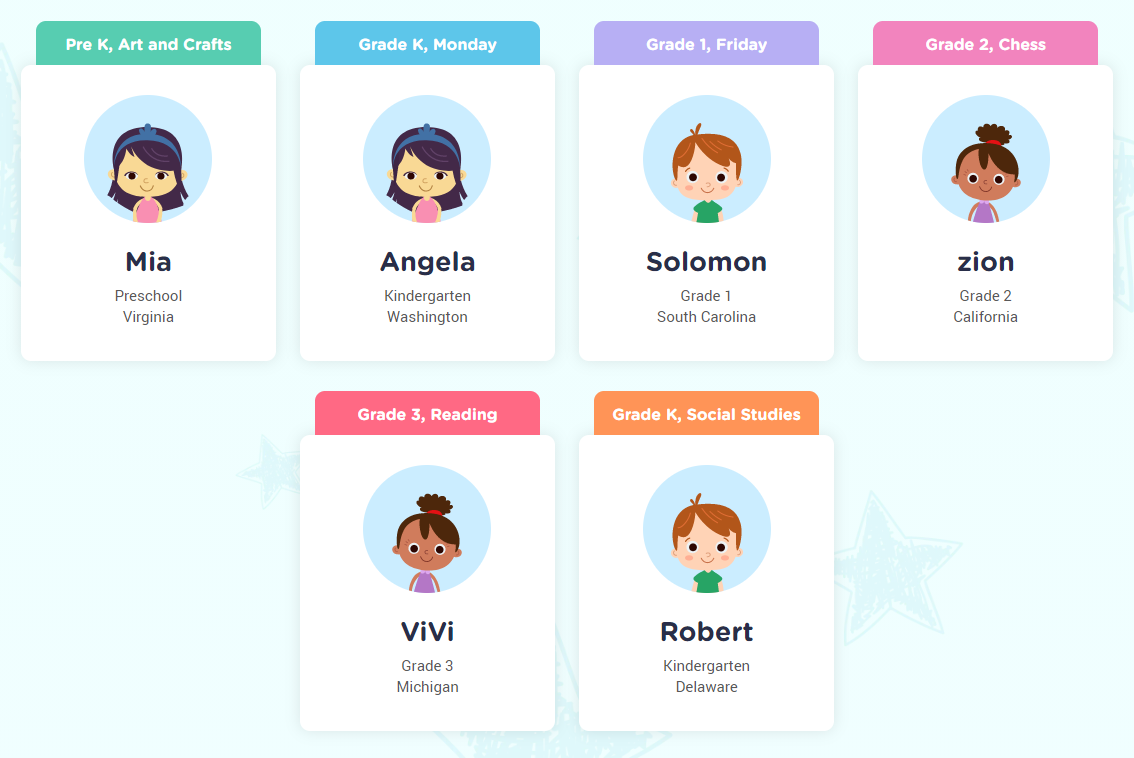Developing observation skills Math Worksheets for Ages 5-7
6 filtered results
-
From - To
Boost your child’s critical thinking and problem-solving abilities with our "Developing Observation Skills Math Worksheets" for ages 5-7. These engaging activities are designed to hone young learners' attention to detail, encouraging them to recognize patterns, identify differences, and connect concepts. With colorful illustrations and fun exercises, our worksheets transform routine practice into an exciting adventure. Perfect for both classroom and home use, these resources help establish a solid foundation in math while cultivating essential observation skills necessary for future learning. Watch your child grow confident in their abilities as they enjoy the educational journey through math.
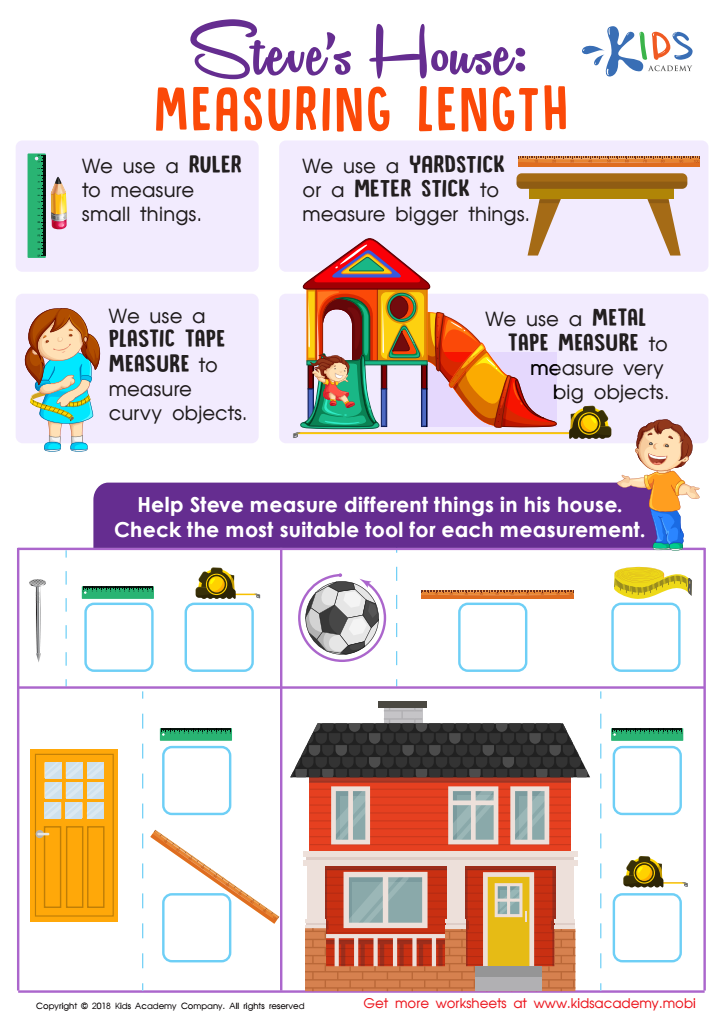

Steve's House: Measuring Length Worksheet
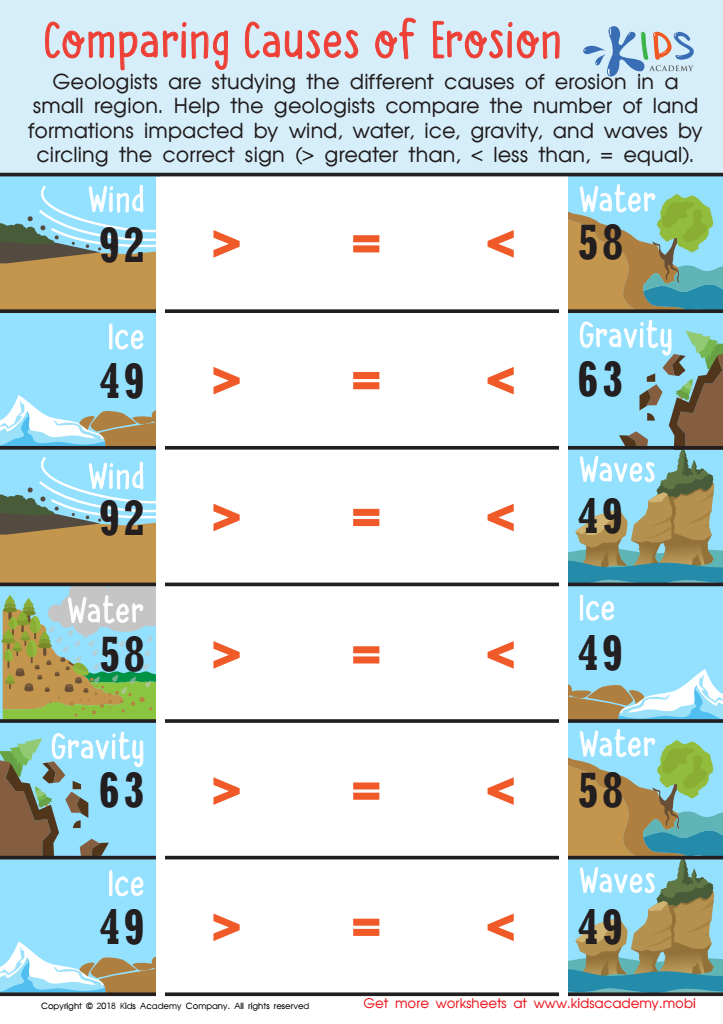

Comparing Causes of Erosion Worksheet
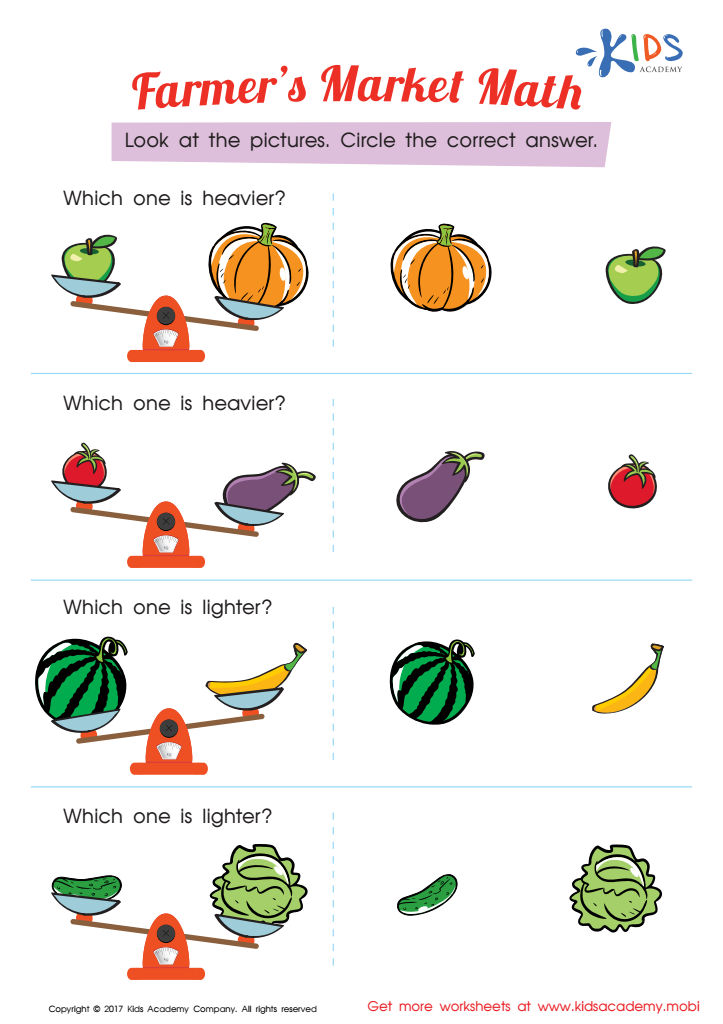

Which One Is Heavier Worksheet
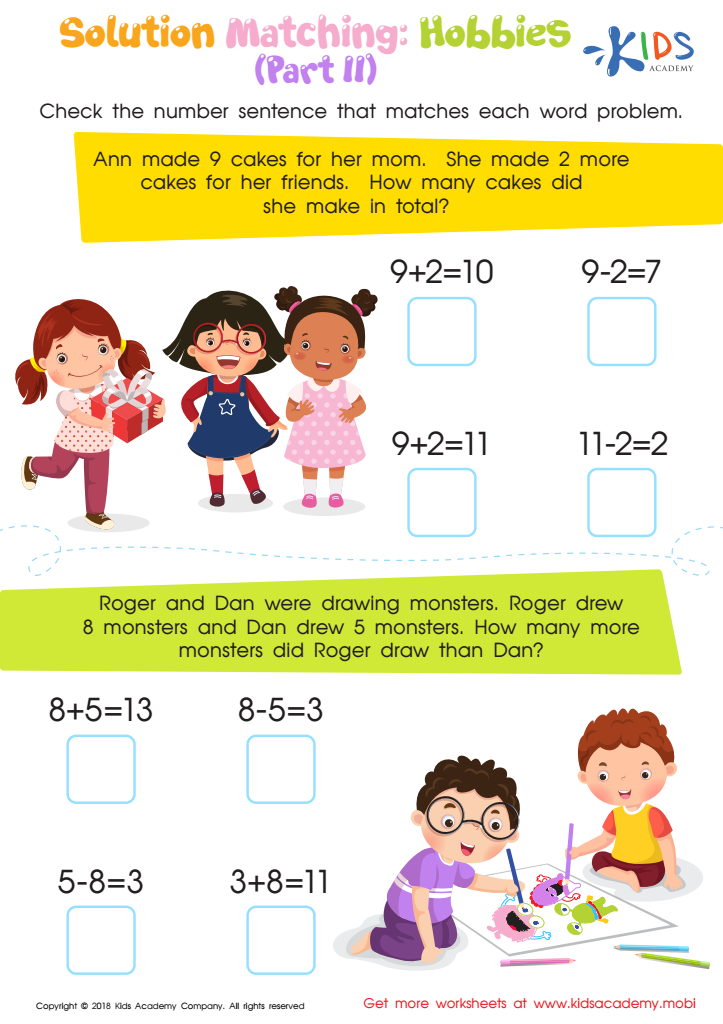

Solution Matching: Hobbies. Part 2 Worksheet
Developing observation skills in math for children aged 5-7 is crucial for several reasons. Firstly, these skills lay the foundation for critical thinking and problem-solving. By observing patterns, shapes, and quantities, young learners start to make connections and identify relationships, enabling deeper understanding rather than mere memorization.
Secondly, observation skills foster a child's ability to accurately interpret and make sense of the world around them. For instance, recognizing patterns helps with sequencing and predicting outcomes, which are key components in both mathematical reasoning and everyday decision-making.
Thirdly, sharpening these skills enhances attention to detail, which is essential in all areas of learning. When children pay close attention to numbers, symbols, and visual patterns, they are more likely to catch mistakes and understand complex concepts later on, from basic arithmetic to advanced geometry.
Additionally, developing observation skills at a young age helps in building confidence and curiosity. When children understand how to look for and find patterns or solutions, they feel more competent and motivated to explore further. This positive attitude towards learning can lead to lifelong academic success and a love for the subject.
Therefore, parents and teachers should prioritize cultivating observation skills in math to provide children with a strong, adaptable, and confident mathematical foundation.
 Assign to My Students
Assign to My Students



